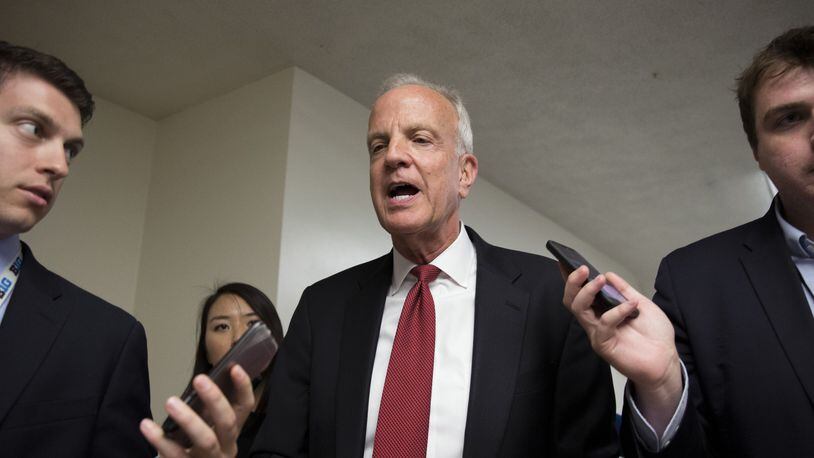But that strategy too seems destined for failure.
“I would not support just having a repeal vote if that’s all he’s going to offer,” said Sen. Rob Portman, R-Ohio, referring to McConnell’s plan. “We need to have a replacement as well.”
With at least three other Republican senators making similar statements — Susan Collins, Shelley Moore Capito and Lisa Murkowski — the votes don’t appear to be there for a straight repeal without a replacement.
So the question now becomes: what next?
Portman insisted he was not “giving up on repeal and replace,” saying that Obamacare “has not been good for Ohio. Premiums and deductibles have skyrocketed” in the individual marketplaces where middle-income people can buy federally subsidized insurance plans, he said.
But many Americans depend on the Affordable Care Act, and lawmakers like Portman have expressed concern about dramatic cuts in Medicaid coverage that provides health care to the poor and is one of the weapon the state is using to fight the opioid epidemic.
“I don’t think it’s appropriate just to repeal,” Portman said. “We’ve also got to put a replacement in place to help deal with the very issues I just talked about.”
A number of lawmakers appeared baffled at McConnell’s strategy, with Sen. Sherrod Brown, D-Ohio, saying, “I don’t have any idea what happens next.”
Brown said repealing the bill with no replacement would cause uncertainty among insurance companies and drive up costs for consumers.
“Of all of McConnell’s ideas on health care, this wins the award of dumbest idea of all,” he said.
President Donald Trump – who announced Tuesday that he would be in Youngstown for a rally on July 25 – expressed exasperation.
“For seven years, I’ve been hearing “repeal and replace” from Congress, and I’ve been hearing it loud and strong,” he said. “And then when we finally get a chance to repeal and replace, they don’t take advantage of it. So that’s disappointing.”
By any measure the news was a setback for Republicans, who have set their sights on vanquishing Obamacare almost from the minute it was passed in 2010. But the party hasn’t been in lockstep with what a replacement would look like, and polls showed overwhelming opposition against the two replacement plans that surfaced, with even many Republicans showing ambivalence.
The nonpartisan Congressional Budget Office may have sunk a dagger into the GOP plans with a pair of analyses that showed millions of Americans would lose their health insurance under the House and Senate proposals. The CBO did not score the latest rewrite done by Senate leaders to shore up conservative votes.
One of the leading conservative voices in the House, Rep. Jim Jordan, R-Urbana, went on CNN Tuesday morning and advocated a straight repeal with a two-year phase-out period that would allow Congress to craft a replacement.
“If it was good enough last Congress,” he said, referring to the many votes taken to eliminate the Affordable Care Act, “why isn’t it good enough this Congress when it really counts? Let’s call up the vote and see what happens. I actually think there’s a good chance it passes.”
Ohio Gov. John Kasich — who, along with a bipartisan coalition of governors, has criticized the recent congressional efforts — said the focus now should be on stabilizing the exchanges and “once that’s done, thinking about the broader aspects of health care.”
“All of these things can be reformed, but it really should be done on a bipartisan basis,” the Republican governor said on CNN.
He dismissed the idea that Republicans had failed.
“If Republicans go home and say, ‘we did our darned best, but here’s the thing, we don’t want to cut people off who really need health care, we will fix this, we will slow the growth of health care, I think it’s a winner,” he said. “I don’t think they need go around apologizing for it.”
Brown said all big laws — Medicare, labor law — need revisiting after three or four years to “fix the unintended consequences.”
“We have always done that,” he said, adding “McConnell won’t let us do that.”
About the Author
